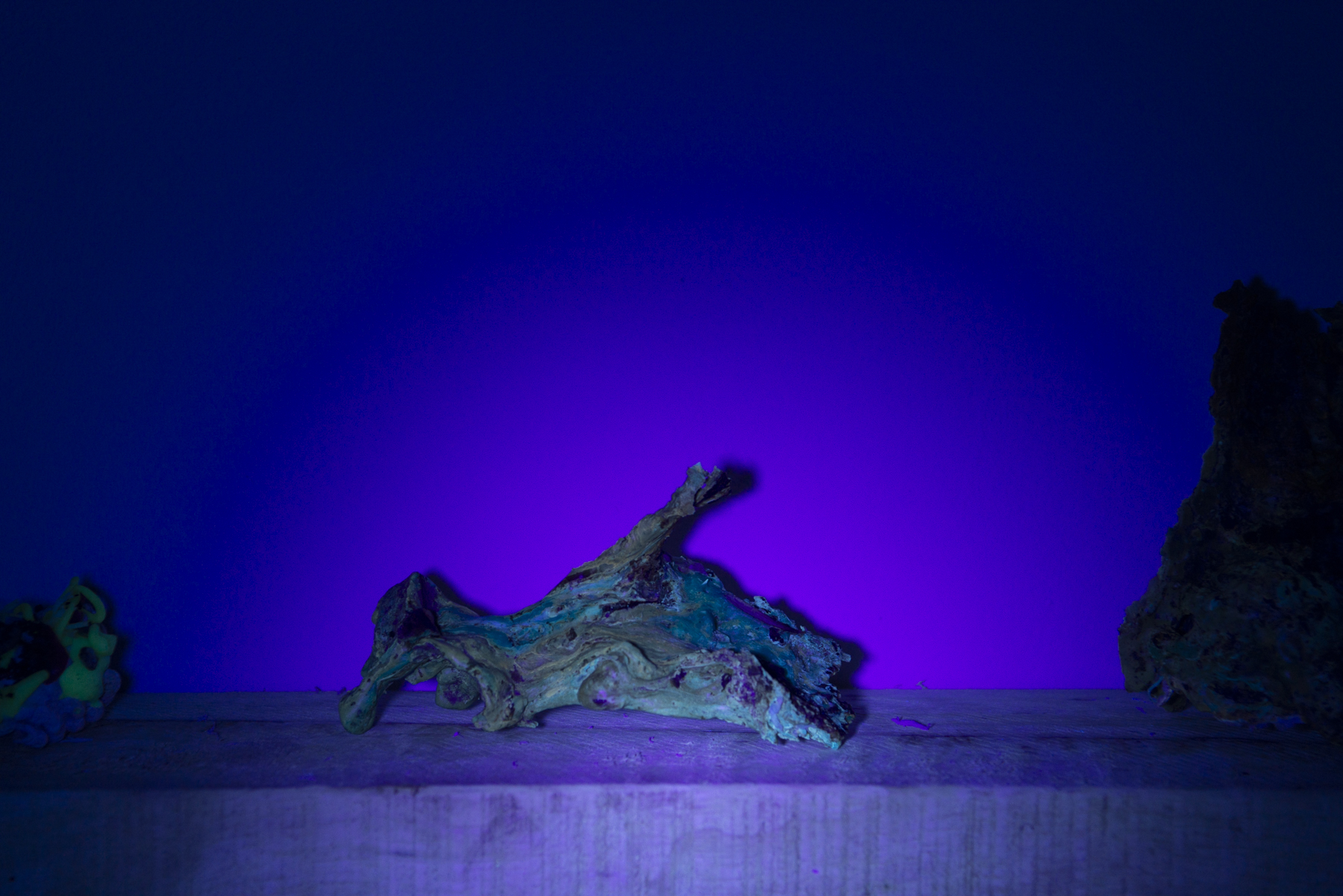
Artist Andy Hughes learned to surf in South Wales in 1985, where encounters with sewage and contaminated waters shaped his art practice. His multidisciplinary practice includes photography, painting, sculpture, film, and digital media. He was an early and active member of Surfers Against Sewage.

In 2022, Hughes was nominated and undertook a six-month artist residency at Gapado AiR, South Korea, during which he created artworks incorporating various concepts, including the real, the surreal, surfaces, the ocean, circulatory systems, plastic waste, and energy.

In June 2013, Hughes was invited by the Alaska SeaLife Centre, The Smithsonian, and the Anchorage Museum to take part in the 'Gyre: The Plastic Ocean Expedition,' the world’s first science and art project dedicated to the issue of plastic pollution in the marine environment.

While at Gapado AiR, Hughes developed several multimodal projects, including works commissioned for the 2022 Jeju Biennale. The exhibition at the Jeju Museum of Contemporary Art featured four commissioned video pieces. In conjunction two large circular photographs made of polycarbonate were sited on Gapado Island, overlooking the ocean towards Japan.

In 2024 The Burton Art Gallery and Museum appointed Andy Hughes for an environmental art commission that included the creation of a video artwork (Machinima) and research aimed at developing alternate perspectives on climate change and pollution.

Dominant Wave Theory (2006) is a groundbreaking book that examines plastic waste along the coast, focusing on the debris found where Hughes learned to surf. It is the first photographic monograph that combines texts from scientists and leading commentators with images of washed-ashore plastic debris as its sole focus. This book was designed by David Carson, who is known for his innovative and experimental graphic design. It includes essays and contributions by Chris Hines MBE, Dr Richard Thompson MBE, Lena Lencek, Dr Chris Short, and Josh Karliner.

Between 1989 and 1993, Hughes made portraits of surfers in Britain and Portugal. In 1993, he became the first artist-in-residence at the Tate Gallery St Ives. During this residency, Hughes collaborated with local surfers and Surfers Against Sewage to co-curate a series of workshops and associated activities called 'Sea Fever,' which involved the design and production of a Tate St Ives surfboard.

In 2019, Hughes received the University of Plymouth Sustainable Earth Institute Creative Associate Awards. These awards were designed to identify novel and innovative methods for communicating research to a public audience. Hughes created a film called Machinima titled Plastic Scoop.
"Very few directors have tackled the complex relationship between environmental issues and digital games. With Plastic Scoop, Andy Hughes makes that connection painfully manifest. By appropriating both the aesthetics of video games and the language of vintage promotional videos and other archival material, à la Adam Curtis, Hughes reminds us that have become aliens to our own planet”.- Matteo Bittanti -
"Very few directors have tackled the complex relationship between environmental issues and digital games. With Plastic Scoop, Andy Hughes makes that connection painfully manifest. By appropriating both the aesthetics of video games and the language of vintage promotional videos and other archival material, à la Adam Curtis, Hughes reminds us that have become aliens to our own planet”.
- Matteo Bittanti -